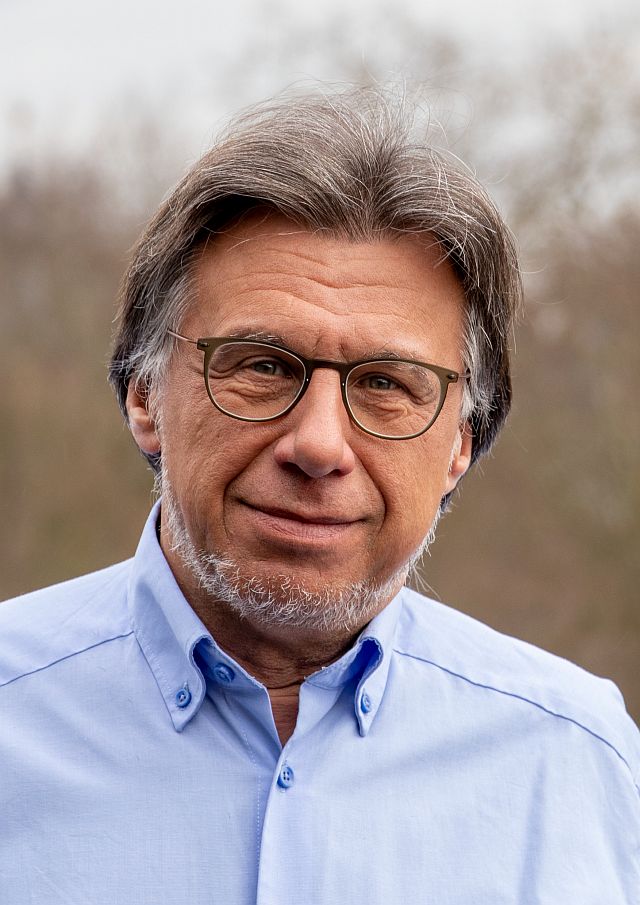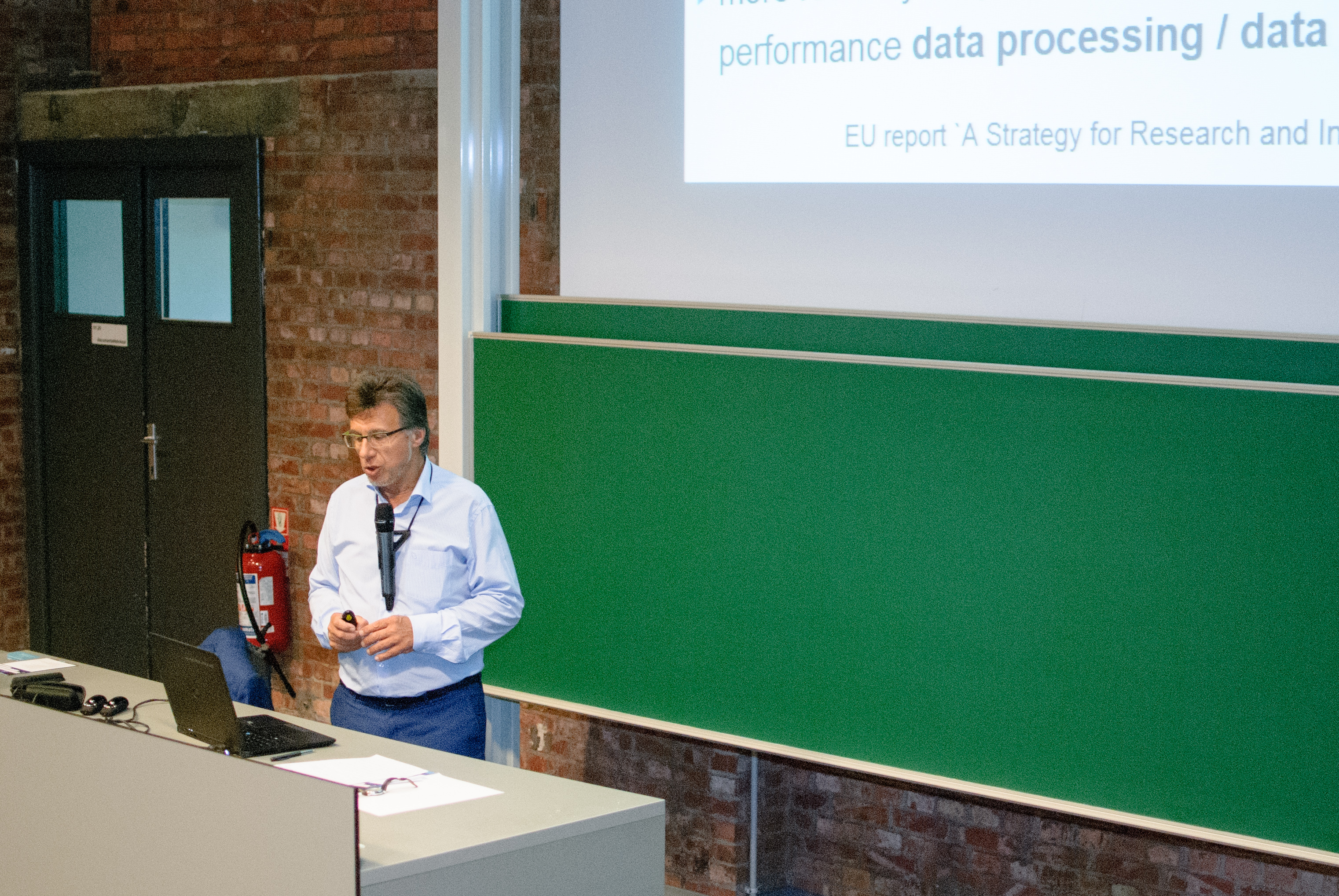Talks with Prof. Dr. Em. Dirk Roose - Part 2
In the past years, there have been several European projects that reflect how the government wants to approach HPC. First, there was PRACE, DEISA, and now EuroCC. How do you see this evolve in the future?

I don’t think that governments steer the development: the initiative mostly comes from the user communities, research agencies and industry, and governments follow. For example, some research fields (like weather forecasting, fluid dynamics, climate prediction) need bigger machines than what is available locally. Then, this message goes up to funding agencies and policy makers. At the end, the government listens and sets up a framework or a program. So it’s more bottom-up than top-down.
PRACE and similar projects were very important because they gave researchers without access to a local supercomputer the possibility to use HPC. As a member of a PRACE selection committee, I saw an interesting variety of proposals: teams having easy access to Tier-2 and Tier-1 but needing access to Tier-0 or researchers who don’t have easy access trying to obtain compute time on a machine elsewhere.
EuroCC is very interesting, but it’s maybe too big. I was not involved in this recent initiative, and I don’t know how it works in practice, but it is a very large initiative with many countries and national competence centres, consisting of several entities. If this is too broad, it can be bureaucratic and not effective for the users.
A positive aspect of EuroCC is the collaboration between VSC and the Walloon counterpart CECI

Supercomputer centres in the USA, Germany and other countries were well-funded by the government or funding agencies. They also worked together. We also had European initiatives; some died out. We need such a European initiative and coordination, but it should be manageable. It is also coupled with the ambition of Europe to build again a computer industry, to become more independent from the USA and China, which is a good idea but very difficult to realise.
You have been involved in the VSC from day one; what was the need the VSC answered?
When we had the Intel iPSC/2 and the Meiko systems, our research efforts got a lot of impact because we could run our algorithms on a real parallel machine. But afterwards, we were losing track because other groups got better machines. This was also the case for other research teams, also in the French-speaking part of Belgium.
We had meetings at the ministry with researchers from different universities explaining why we needed supercomputing. But nothing at the Belgian level or Flanders materialised, partly because, at that time, the internet was not fast. It was important to be close to the machine. If a machine would be located at university X, researcher at university Y would not be happy. That problem didn’t exist anymore when VSC started. That was, for me, one of the conditions to be successful with VSC, namely, it does not matter where the machine is located. Otherwise, you have fights between partners to have the machine at their place.
In the period 1990 - 2005, when a Belgian university bought a powerful system, there was no policy to replace it. This happened over and over, and this motivated me to work together with other people (I was not the main actor) for the VSC to become a reality.
The starting point was the initiative in 2007 of the Flemish government for heavy research infrastructure at the universities (Hercules ) because we were not able to maintain good experimental facilities, whether this was a scanning electron microscope or a supercomputer. Within the Hercules programme all Flemish universities obtained a HPC cluster. Clearly, everybody needed such a machine.
Since each university had a (small) Tier-2 system, it was the right moment to ensure we could replace these systems after some years and not fall again into the same situation as before, namely one-shot initiatives. That was the starting point of a coordinated initiative to convince the Flemish government that we should have a supercomputing centre.
How did that go?
It took quite some time before we really could start to talk about the VSC. The government said: ‘Okay, but first show that you can work together.’ So, the five universities, or rather the associations, had to work together to write a strong proposal and a business plan. Stefaan Poedts, KU Leuven, was one of the leaders, together with people at the other universities. Vice-rector Karen Maex of KU Leuven also strongly supported the idea. Kurt Lust was hired to coordinate the proposal. Only when there was a clear plan for collaboration, the decision to found VSC was taken.
Did this take some time or was it a smooth exercise?
Well, on the one hand, researchers like Stefaan Poedts and myself just wanted a supercomputer, in collaboration with the other universities. But at a higher level, there was competition between the bigger and smaller universities.
Also, the government wanted to involve industry, partly due to the funding mechanism that they proposed (money would come also from more economic departments and ministries). I could understand this. But if industry had no experience in supercomputing, how could the Flemish industry be convinced to use supercomputing? The research world was ready, but the industry was not ready. So we were forced to involve industry for good reasons, but that made it difficult, in my opinion.
Would you like to comment on its evolution since those early days?

Well, the evolution of VSC is fantastic, better than I expected. We really closed the gap with other regions. We are now doing quite well compared to other countries or regions.
Of course, when you start up a new initiative, you encounter some difficulties. For example, it was not clear who would manage the VSC. The universities were in charge, but it was decided that it would be more efficient to place the VSC management in hands of the Hercules foundation. That was quite special because Hercules was a funding agency, not designed to manage such a centre.
When the VSC was transferred from Hercules to FWO, some of us feared that the VSC would be a small part of FWO’s concerns. Fortunately, those fears proved unfounded. VSC was taken very seriously by FWO.
How were you recently involved in the strategic decision-making of the VSC?

I took up the chairmanship of the VSC User Council because it was important in my opinion, that the users were heard and involved in the VSC decision-making. Because of all my efforts in the past, I wanted to take up that role. That was my most important involvement in the VSC.